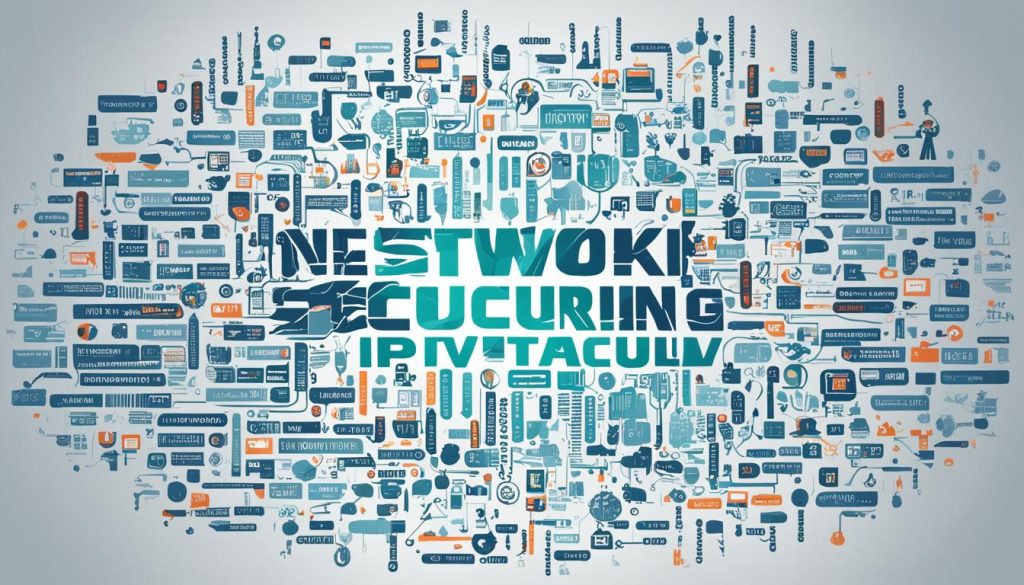With the rise of Internet Protocol Television (IPTV) services, concerns about data security and privacy have become increasingly prominent. As more users turn to IPTV for their entertainment needs, it’s essential to prioritise security measures to safeguard sensitive information and maintain user privacy. IPTV services generally depend on a broad network of servers and encoders to deliver content to each customer, making them vulnerable to security threats such as denial-of-service attacks. The high cost of securing the IPTV network has also broken the service’s business model, with tier-1 providers unwilling to roll out a service without being able to secure the infrastructure, and tier-2 providers struggling to provide security without significantly increasing costs.
Key Takeaways
- IPTV services are vulnerable to security threats such as denial-of-service attacks due to their reliance on a broad network of servers and encoders.
- The high cost of securing the IPTV network has broken the service’s business model, with tier-1 providers reluctant to roll out a service without adequate security, and tier-2 providers struggling to provide security without increasing costs substantially.
- Prioritising security measures to safeguard sensitive information and maintain user privacy is essential as more users turn to IPTV for their entertainment needs.
- Concerns about data security and privacy have become increasingly prominent with the rise of IPTV services.
- Implementing robust security measures is crucial to protect IPTV systems and users against various cybersecurity threats, such as malware, phishing attacks, and hacking attempts.
Understanding IPTV Security Risks
As IPTV systems collect and store user data, this can pose significant risks if not properly secured. User viewing habits and personal preferences can be tracked, leading to data privacy concerns. Potential data breaches and unauthorised access to sensitive information can result in identity fraud and financial losses. Implementing robust security measures is crucial to protect against these threats and mitigate potential risks.
Data Privacy Concerns
IPTV platforms often gather and retain user data, including viewing habits and personal preferences. This information, if not adequately protected, can be vulnerable to breaches, potentially leading to identity fraud and financial losses for consumers. Safeguarding user data privacy is a paramount concern for IPTV providers, as they must ensure the confidentiality and integrity of sensitive customer data.
Cybersecurity Threats
IPTV systems face a range of cybersecurity threats, including malware, phishing attacks, and hacking attempts. These threats can have serious consequences, such as data theft and financial losses. Implementing effective security measures is essential to protect IPTV systems and users against these evolving threats.
Essential Security Best Practices
To address the security challenges faced by IPTV systems, implementing essential security best practices is crucial. This includes encryption and data protection, secure authentication mechanisms, and robust network security measures to safeguard user data and the overall integrity of the IPTV infrastructure.
Encryption and Data Protection
Encrypting user data is essential to prevent unauthorised access. IPTV providers should implement advanced encryption protocols and techniques to secure data at both the server and client levels, ensuring end-to-end security. Robust data protection measures are also vital to safeguard sensitive user information and maintain data privacy.
Secure Authentication Mechanisms
Secure authentication mechanisms, such as two-factor authentication (2FA) and biometric authentication, are essential to prevent unauthorised access to IPTV accounts. Implementing strong password policies and regularly updating authentication mechanisms can help address emerging security threats and vulnerabilities.
Network Security Measures
Network security measures, including firewalls, intrusion detection systems (IDS), and virtual private networks (VPN), are crucial to securing the IPTV network infrastructure. These measures can prevent unauthorised access and protect against external threats. Regular network monitoring and threat detection are also important in identifying and mitigating security incidents in real-time.

What are the Security Challenges in IPTV?
The key security challenges in IPTV encompass a range of critical concerns, including data privacy, cybersecurity threats, the high cost of securing the IPTV network, and the pressing need for robust security measures to protect user data and maintain the integrity of the IPTV system. Addressing these challenges is crucial for IPTV providers to deliver a safe and secure viewing experience for users.
Data privacy concerns are a significant issue in IPTV, as these systems collect and store vast amounts of user data, including viewing habits and personal preferences. Potential data breaches and unauthorised access to this sensitive information can result in identity fraud and financial losses, posing serious risks to users. Implementing effective encryption and data protection measures is essential to safeguard user privacy and prevent such breaches.
IPTV systems are also vulnerable to a range of cybersecurity threats, such as malware, phishing attacks, and hacking attempts. These threats can have severe consequences, including data theft and financial losses. Robust network security measures, including firewalls, intrusion detection systems (IDS), and virtual private networks (VPN), are crucial in securing the IPTV network infrastructure and protecting against external threats.
The high cost of securing the IPTV network has also emerged as a significant challenge, with tier-1 providers unwilling to roll out a service without being able to secure the infrastructure, and tier-2 providers struggling to provide security without significantly increasing costs. This has led to a need for innovative security solutions that can effectively protect IPTV systems while maintaining a sustainable business model.
Addressing these security challenges in IPTV is paramount in order to deliver a safe and secure viewing experience for users. By implementing secure transmission protocols, robust authentication mechanisms, and comprehensive data protection measures, IPTV providers can mitigate the risks and build trust with their customers.
Conclusion
Safeguarding user data and privacy in IPTV systems is paramount in an increasingly interconnected world. By implementing essential security best practices, such as encryption, secure authentication mechanisms, network security measures, and regular software updates, IPTV providers can mitigate cybersecurity risks and protect user information from unauthorised access and data breaches. Prioritising security will enable IPTV systems to provide users with a safe and secure viewing experience, enhancing trust and confidence in the platform.
As the IPTV landscape continues to evolve, it’s essential for providers to remain vigilant and proactive in addressing emerging security threats and vulnerabilities to ensure the protection of user data privacy. By implementing robust network security measures and secure transmission protocols, IPTV providers can effectively safeguard the content protection and authentication processes, ensuring a seamless and secure viewing experience for their valued customers.
In conclusion, the security challenges in IPTV are multifaceted, requiring a comprehensive and proactive approach to data privacy and network security. By prioritising security as a core component of their service offerings, IPTV providers can build trust, confidence, and loyalty among their user base, solidifying their position in the ever-evolving digital entertainment landscape.
FAQ
What are the key security challenges in IPTV?
The key security challenges in IPTV include data privacy concerns, cybersecurity threats, the high cost of securing the IPTV network, and the need for robust security measures to protect user data and maintain the integrity of the IPTV system.
What are the data privacy concerns in IPTV?
IPTV systems collect and store user data, which can pose significant risks if not properly secured. User viewing habits and personal preferences can be tracked, leading to privacy concerns. Potential data breaches and unauthorised access to sensitive information can result in identity fraud and financial losses.
What are the cybersecurity threats faced by IPTV systems?
IPTV systems face various cybersecurity threats, including malware, phishing attacks, and hacking attempts. These threats can have serious consequences, such as data theft and financial losses.
How can IPTV providers secure the network infrastructure?
Network security measures, including firewalls, intrusion detection systems (IDS), and virtual private networks (VPN), are crucial to securing the IPTV network infrastructure. These measures can prevent unauthorised access and protect against external threats. Regular network monitoring and threat detection are also important in identifying and mitigating security incidents in real-time.
What are the essential security best practices for IPTV providers?
Essential security best practices for IPTV providers include implementing encryption protocols and techniques to secure data at both the server and client levels, ensuring end-to-end security; implementing secure authentication mechanisms, such as two-factor authentication (2FA) and biometric authentication, to prevent unauthorised access to IPTV accounts; and regularly updating software and security measures to address emerging threats and vulnerabilities.



